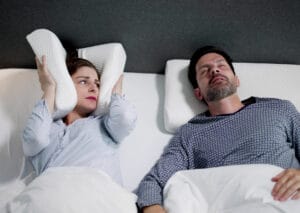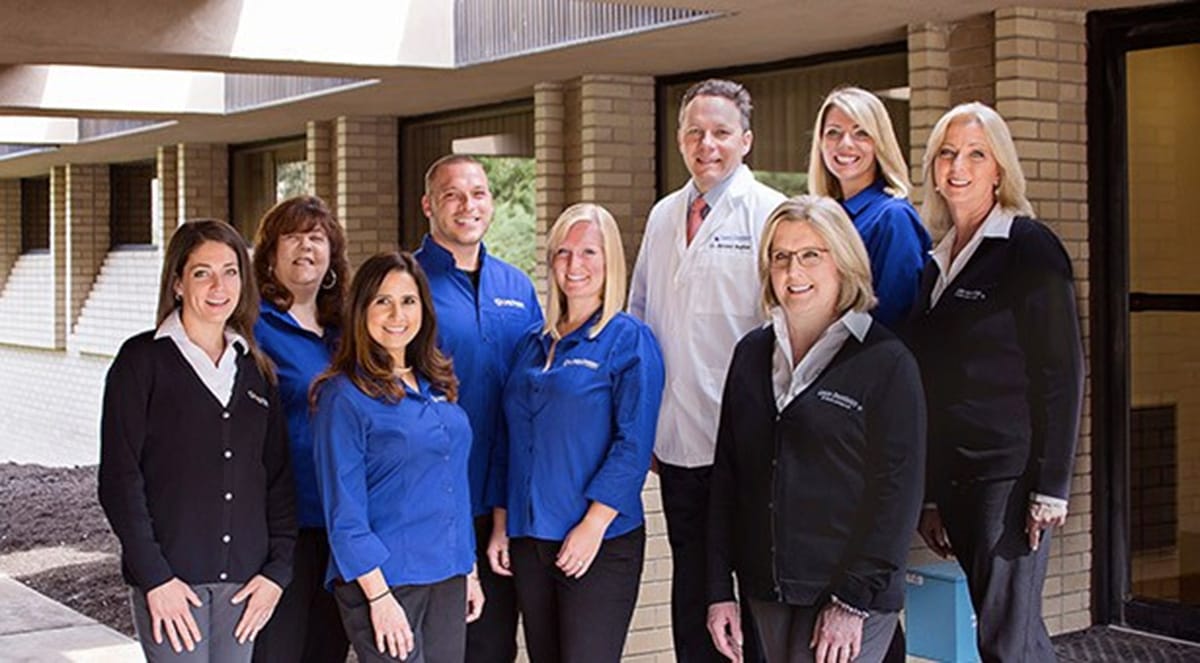 Often thought of as an annoying habit, snoring is sometimes a sign of a much more serious disorder called sleep apnea. Sleep apnea is a condition in which patients stop and start breathing several times in the night. For patients in New Jersey, sleep apnea treatment is available at Laser Dentistry of North Jersey.
Often thought of as an annoying habit, snoring is sometimes a sign of a much more serious disorder called sleep apnea. Sleep apnea is a condition in which patients stop and start breathing several times in the night. For patients in New Jersey, sleep apnea treatment is available at Laser Dentistry of North Jersey.
Types of Sleep Apnea
At Dr. Richard Bucher’s New Jersey cosmetic dentistry practice, sleep apnea can be an extremely dangerous condition that carries with it several dangers. The three types of sleep apnea are obstructive sleep apnea, in which the soft tissue surrounding the airway obstructs breathing; central sleep apnea, in which the brain’s automatic breathing control is imbalanced during sleep, and the body fails to breathe; and mixed apnea, which is a combination of the two forms.
Dangers of Sleep Apnea
Sleep apnea is a usually chronic disorder in which patients stop breathing for a few seconds to a few minutes. This carries with it several dangers:
- Death. If a patient stops breathing for long enough and the body fails to awake itself and breathe, a patient will lose oxygen to his or her head and die.
- High-blood pressure. Common with obstructive sleep apnea, high blood pressure occurs when the body’s sleep-deprived hormonal systems go into overdrive.
- Weight gain. Because of the body’s constant state of exhaustion, patients who are treated for their sleep apnea may experience a renewed drive for exercise.
- Heart disease. People with sleep apnea have low oxygen levels going to their hearts and brains and may be more susceptible to heart attack.
- Groggy driving. Because of exhaustion from waking up several times in the night, people with sleep apnea may be weary of driving when tired.
Other, non-dangerous but equally as bothersome side effects of sleep apnea include:
- Chronic snoring
- Choking
- Dry mouth
- Headaches,
- Feeling out of breath
- Moodiness
Treatment for Sleep Apnea
Patients can be a major player in the treatment of their sleep apnea. Simply by living a healthier lifestyle, including exercise, weight loss and a healthy diet can help decrease the intensity of sleep apnea. Additionally, patients who smoke, drink alcohol or caffeine in large amounts, or take sedatives should stop if they are experiencing sleep apnea.
Patients can purchase certain strips and tools over the counter that may improve sleep apnea. These usually fit over the nose and open the nasal passages. Other tricks like propping a patient’s head up at night or sleeping on his or her side may reduce the likelihood for sleep apnea.
Dr. Bucher will usually explore whether or not a medical condition is causing the sleep apnea, and may provide an oxygen supplement, distributed through a sleep machine, that works while patients’ sleep.
The CPAP, or Continuous Positive Airflow Pressure machine, is a common treatment for sleep apnea. It opens the breathing passages and provides a constant stream of air while patients sleep. There are also bilevel positive airway pressure and adaptive servo-ventilation machines.
If a dentistry problem is the cause for the sleep apnea, Dr. Bucher will recommend the best procedures to correct it. Many of Dr. Bucher’s patients experience success with a mandibular splint, or mouth guard. Dr. Bucher can take a mold of the mouth and have a custom splint made for patients who suffer from sleep apnea.
For more information on sleep apnea and its dangers and treatments, please contact Dr. Bucher today for a confidential, educational consultation.





